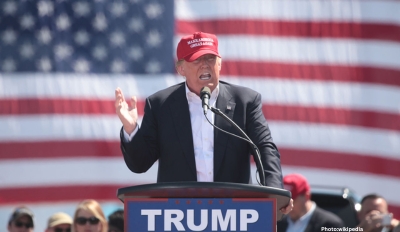The Indian rupee ended November with its most significant monthly loss in eight months, primarily impacted by Donald Trump’s victory in the U.S. presidential election, which spurred a surge in the dollar and U.S. bond yields, alongside continued foreign portfolio outflows.
On Friday, the rupee closed at 84.4825 against the dollar, nearly unchanged for the day but hovering near its record low of 84.5075 reached the previous week. Over the course of the month, the currency depreciated by nearly 0.5%, marking its steepest monthly decline since March.
The dollar has strengthened, and U.S. yields have risen notably following Trump’s win in the November 5 election. This trend has adversely affected emerging market assets. The dollar index climbed by 2% in November, while the 10-year U.S. Treasury yield peaked at 4.50% earlier in the month, the highest level since July.
In November, foreign investors sold more than $1.7 billion worth of Indian stocks and bonds, adding to the $11.5 billion net outflow recorded in October. Despite these pressures, the rupee managed to outperform many of its regional counterparts, primarily due to the proactive measures by the Reserve Bank of India (RBI).
The RBI has actively intervened in various markets to support the rupee, including selling dollars in the spot, futures, and non-deliverable forward markets. Furthermore, the central bank has urged banks to curtail speculative trading against the currency and has intensified monitoring of their foreign exchange activities.
Market participants anticipate the RBI will maintain its firm stance to protect the rupee, permitting only a controlled and gradual depreciation.
Looking ahead, emerging market currencies, including the rupee, could remain under pressure as Trump’s administration prepares to take office in January. Investors are keenly awaiting details of his policies, particularly regarding trade tariffs, which could significantly impact global markets.
“We believe the Indian rupee and IGB (Indian government bonds) would be the most resilient assets in Asia under the Trump presidency,” stated analysts at Societe Generale in a note.
On Friday, Asian currencies generally benefited from a softer dollar. However, the rupee failed to gain traction due to persistent dollar demand from foreign banks, according to traders.
This complex interplay of global economic factors and domestic interventions has placed the rupee in a challenging position, reflecting broader uncertainties in the emerging market landscape.

